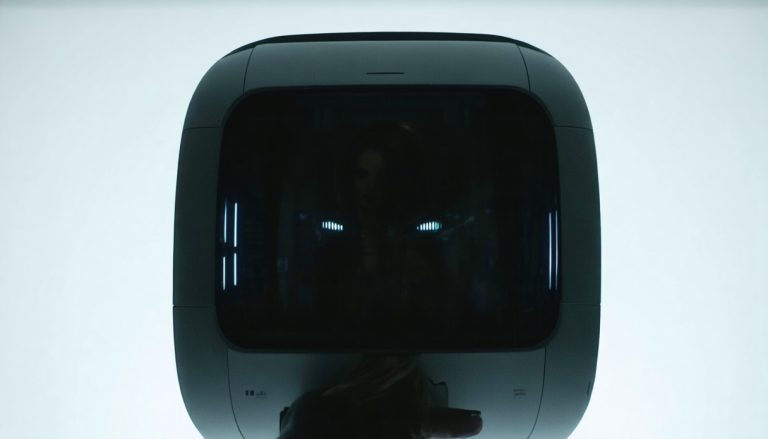
Historic Flight Marks a New Era in Aviation
In a groundbreaking achievement, a resident of Campbell River has become the first student pilot in Canada to fly solo in an electric airplane. This remarkable milestone occurred on December 18, as the 18-year-old, Catherine Check, took her place in aviation history after completing around 10 hours of training.
Driven by a passion for flying that started at just five years old, Check initially trained on conventional aircraft before embracing the innovative electric plane offered by her instructor at Sealand Flight School. The lightweight aircraft, a Velis Electro, offers a unique flying experience, as Check noted it handles turbulence differently. The advanced technology of the electric plane allows her to closely monitor its engine and battery systems, enhancing her sense of safety during her 50-minute solo adventure.
Check’s accomplishment is particularly significant in a traditionally male-dominated field, inspiring other aspiring pilots, especially women, to pursue their dreams. The electric airplane not only promotes a more sustainable future for aviation but also reduces noise and emissions, marking a pivotal shift in flight training.
Sealand Flight School, supported by organizations like Clean BC and BC Hydro, celebrates this milestone in sustainable aviation training. Their efforts are paving the way for more environmentally-friendly aircraft in Canada as regulators and industry experts study the integration of these innovative technologies into mainstream aviation.
Catherine Check’s Historic Solo Flight: Pioneering a Greener Aviation Future
In a groundbreaking achievement, a resident of Campbell River has become the first student pilot in Canada to fly solo in an electric airplane. This remarkable milestone occurred on December 18, as the 18-year-old, Catherine Check, took her place in aviation history after completing around 10 hours of training.
Driven by a passion for flying that started at just five years old, Check initially trained on conventional aircraft before embracing the innovative electric plane offered by her instructor at Sealand Flight School. The lightweight aircraft, a Velis Electro, offers a unique flying experience, as Check noted it handles turbulence differently. The advanced technology of the electric plane allows her to closely monitor its engine and battery systems, enhancing her sense of safety during her 50-minute solo adventure.
Features of the Velis Electro
The Velis Electro is not only the first fully electric plane certified for pilot training but also boasts several defining features:
– Noise Reduction: The electric design of the Velis Electro significantly reduces operational noise, promoting quieter flying experiences compared to traditional aircraft.
– Zero Emissions: As a fully electric aircraft, it contributes to a reduction in carbon emissions, making it an environmentally responsible choice for training and leisure flying.
– Cost Efficiency: Electric aircraft typically have lower operating costs, which can lead to more affordable flying lessons in the long run.
Use Cases Beyond Flight Training
Electric airplanes like the Velis Electro can also have broader applications beyond pilot training. These include:
– Urban Air Mobility: With their low noise and emission profiles, electric aircraft are well-suited for urban air mobility solutions, such as air taxis.
– Aerial Surveillance and Monitoring: Their quieter operation makes them ideal for use in areas requiring discretion, like wildlife monitoring and environmental studies.
– Emergency Services: Electric planes can be deployed in operations that benefit from reduced noise, such as search and rescue missions in urban environments.
Pros and Cons of Electric Aircraft
Pros:
– Environmentally friendly with zero emissions.
– Lower operational costs leading to potential savings.
– Quieter operation enhances training environments and urban applications.
Cons:
– Limited range compared to traditional aircraft.
– Battery technology still evolving, which may affect performance and availability.
– Reservation in public perception can limit adoption among more traditional aviators.
Trends in Sustainable Aviation Training
Catherine Check’s historic flight comes at a time when the aviation industry is increasingly focusing on sustainability. Organizations like Clean BC and BC Hydro, which supported Sealand Flight School, are part of a broader trend aimed at integrating green technologies into aviation.
Insights from Experts
Industry analysts predict that the integration of electric aircraft into pilot training programs will be a major driver in reshaping the aviation landscape. More flight schools are expected to adopt electric planes, making training more accessible and environmentally conscious. Regulatory bodies are also increasingly considering how to adapt legislation to accommodate these new technologies, which may accelerate widespread use.
Pricing and Accessibility
The initial investment for electric training aircraft, such as the Velis Electro, can be higher. However, due to lower running costs and the potential for government incentives focused on sustainability, the long-term cost could prove beneficial for flight schools. Additionally, rising awareness about the benefits of electric flying might create new funding opportunities and sponsorships for aspiring pilots.
For more information on electric planes and their impact on aviation, visit aviationtoday.com.
Catherine Check’s inspirational journey marks not just a personal milestone but a pivotal moment in the evolution of aviation towards a more sustainable, inclusive future.



